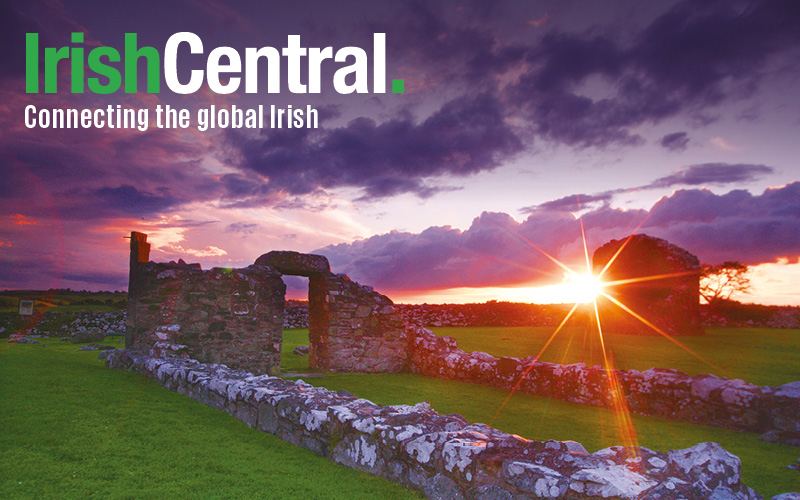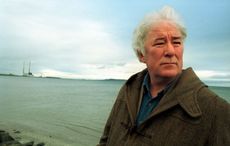I suppose if you live long enough, almost nine decades, all is eventually forgiven. At least that’s what the obituaries for Rev. Ian Paisley suggest. Like many of us, I was raised to observe the “de mortuis nil nisi bonum” credo, to speak no ill of the dead, but in the days since Ian Paisley’s passing, I have grown increasingly vexed over the glowing online obituaries, the over-the-top eulogizing of a man, who from the year of my birth until the year I left Northern Ireland, railed against the Catholic Church, spewing hate and bigotry – brilliantly – and inciting countless followers to violence.
I did not know Ian Paisley as a father and a husband. I know nothing of the way he conducted his personal life. I empathize with his grieving family. But I am compelled to comment on his public life which splashed noisily onto mine and the lives of so many ordinary people living in Northern Ireland, people who wanted peace some forty years before the fragile state of it in place today, people who were denied it in large part because of Paisley’s immovability, his fire and brimstone ferocity, his rabble-rousing. Martin McGuinness writes that for decades:
Ian Paisley was seen as part of an intractable and unending problem in the North of Ireland. But in the end, he made a powerful and determined contribution to resolving that problem and pointing to a new way forward based on dialogue, respect, partnership and reconciliation.
Unlike McGuinness, I am not a politician. I am a teacher who began her career in a Belfast classroom, where students revered Paisley and openly despised Catholics. Where did that hatred come from? Much of it was fueled by the rhetoric of Ian Paisley. In that classroom, I had a daily opportunity to observe what happens to a country when the hearts of its young harden, and I cannot forgive Ian Paisley for his part in that. I read recently that early adolescence is the best time to learn a second language – Paisley et al could have been instrumental in teaching the language of peace and understanding. They could have taken the lead in integrating our schools and modeling for us the kind of dialogue that would have set Northern Ireland on a path to peace and avoided years of bloodshed.
I know of course that my opinion of Ian Paisley probably doesn’t matter much. I know that in spite of being told to do the decent thing and to say nothing against a man who cannot defend himself in death, I feel a profound sense of obligation to speak publicly about the impact of his thundering, virulent attacks on Catholicism, liberalism, the Civil Rights movement, mixed marriage, and homosexuality, because he played a starring role in the destruction of dreams of peace and unity for so many of us. Along with the black and white images of The Troubles that flicker still in my memory – the banging of the bin-lids, the soldiers on street corners, the bombed out shops and the panic-stricken faces of families forced out of their homes, I can hear Ian Paisley roaring from our television set, his violent rhetoric scaring the little girl I once was.
There is no doubt, as the obituaries reveal, that Paisley, the “Big Man from Ballymena” (who called himself a child of God) was a masterful politician. He knew how to work a room, how to whip a crowd into a frenzy, how to frighten his followers into believing that their cultural heritage, their very way of life was at risk and, he knew how to step back, absolved of any responsibility for what they might do. He was instrumental in bringing Northern Ireland to a standstill in 1974 through the Ulster Workers’ Strike. Forty years on, and on the other side of the world, I cannot write about the UWS without writing about what happened on May 24, 1974 at The Wayside Halt, a nondescript country pub on the edge of the dual carriageway between Antrim and Ballymena, the kind of place that wouldn’t merit a second look.
The Wayside Halt will forever linger in a corner of my consciousness, refining my sense of who I am. My father told me not too long ago that on that May evening in 1974, one of his friends had suggested stopping at the pub for a quick pint on the way home. Back home, the “quick pint” is something of a paradox, and because dad was in a rush to complete bread deliveries before dark that Friday night, he declined. Before he reached Randalstown, the harrowing word had arrived that within the previous hour, Loyalist paramilitaries had barged into the Wayside Halt, and shot at point-blank range, the Catholic publican, Shaun Byrne, and his brother, Brendan. Other pub owners in the Ballymena area had been attacked as well, their places of business vandalized because they had decided to remain open during the United Workers Council Strike of 1974.
Shaun and Brendan Byrne were murdered, while the children were in the sitting room upstairs. In the picture sent to me by one of the Byrne family, the only child not home that evening is the little girl at her father’s right shoulder.
Ian Paisley – man of God – did not attend their funerals. Intransigent and unyielding, it would take another quarter of a century of bloodshed – a lifetime – before he would accept the Good Friday Agreement and share power with his former Nationalist enemies as First Minister in the new devolved government.
Too late for the Byrne brothers and their families.
Too late for me.




Comments